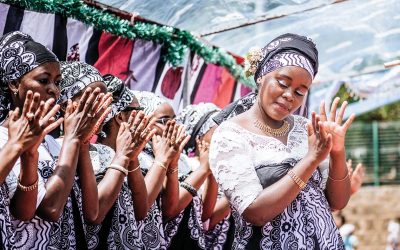Comoros, officially known as the Union of the Comoros, is an archipelago island nation in the Indian Ocean. Its history is rich and diverse, shaped by various civilisations and colonial powers. We will explore Comoros’s journey from colonisation to independence, highlighting key events, cultural influences, and the struggles faced by the nation.

Early inhabitants and European contact
Comoros’s history dates back over 1,500 years. The island’s earliest inhabitants were believed to be Bantu-speaking Africans who settled there in the 6th century. Over time, the islands were also influenced by Arab, Malagasy, and Persian cultures. The arrival of Portuguese explorers in the 16th century marked the beginning of European contact with Comoros.
The 17th and 18th centuries witnessed the presence of Dutch and British traders in the region. The islands became important supply points along the eastern route, with Ndzwani Island serving as a key location. The islands were divided into different kingdoms, and conflicts and power struggles ensued.
French colonial rule
In the 19th century, both the French and the British sought to establish control over the Comoros islands. Eventually, the French employed a “divide and conquer” policy, gaining dominance over the islands. Mayotte, one of the islands in the Comoros archipelago, was officially annexed by France in 1841.
Under French colonial rule, Comoros became a part of the French colonial empire. The islands were used as a trading post and supplied goods such as tortoiseshells, cattle, and coconuts. The wealthier Arab traders and French settlers developed a plantation-based economy, further deepening the ties between Comoros and France.
Struggles for independence
The desire for independence grew among the people of Comoros in the mid-20th century. France gradually agreed to constitutional changes, and in 1946, Comoros became an individually governed colony separate from Madagascar.
The push for independence intensified in the 1970s. In 1974 and 1976, referendums were held, with most people voting in favour of independence. However, the island of Mayotte chose to remain under French rule, causing a divide among the islands.
On 6 July 1975, Comoros declared unilateral autonomy, and in 1978, it officially gained independence. The first president of the newly independent nation was Ahmed Abdallah. However, political instability plagued the country, with an excessive number of coups and changes in leadership.
Political turmoil and coups
After gaining independence, Comoros faced a series of political upheavals. Ahmed Abdallah, the first president, was overthrown in an armed coup in 1975 by Prince Said Mohamed Jaffar. Jaffar’s rule was short-lived, as he was ousted in 1976 by Ali Soilih, his Minister of Defense.
Ali Soilih implemented isolationist and socialist policies, straining relations with France. In 1978, a French mercenary, Bob Denard, orchestrated a coup that brought Abdallah back to power. Denard had the support of the South African and French governments, leading to a de facto rule by him.
The political landscape remained turbulent, with multiple coup attempts and power struggles. In 1989, Ahmed Abdallah was assassinated, and Said Mohamed Djohar became the next president. However, his presidency was marked by impeachment attempts and a coup in 1992.
Recent history and challenges
In the late 1990s, the islands of Anjouan and Moheli declared their sovereignty from Comoros, seeking to restore French rule. However, France declined their request, leading to conflicts between the federal forces and the rebels. The African Union intervened to mediate the situation.
In 1999, Colonel Azali Assoumani seized power in a bloodless coup, ousting the interim president. He implemented changes in the political structure, allowing each island to have partial autonomy. Elections were held, and Assoumani was elected as the president in 2002.
Comoros has faced various challenges in recent years, including political tensions, economic struggles, and environmental concerns. The country has a high population density and is vulnerable to natural disasters. Efforts are being made to strengthen governance, promote economic development, and address social issues.
Cultural heritage and diversity
Comoros is known for its rich cultural heritage and diversity. The nation is influenced by African, Arab, and Malagasy cultures. Comorian, Arabic, and French are the official languages, reflecting the multicultural nature of the country.

Many women paint their faces with intricate patterns or floral designs in white and yellow paint. This “paint” is derived from a specific kind of wood; the bark of a tree is ground into a fine powder and then transformed into a paste. These elaborate designs serve more than just an aesthetic purpose – they protect the skin from sun damage and repel insects like mosquitoes. Additionally, it is believed to enhance one’s complexion, similar to how a face mask or cream would function. This unique practice is known as Masonjaony.
Tourism and economic potential
Comoros has significant potential for tourism and economic development. Its pristine beaches, coral reefs, and volcanic landscapes attract visitors from around the world. The government is working to promote sustainable tourism and harness the islands’ natural beauty.
The Comorian economy relies on agriculture, fishing, and remittances from the Comorian diaspora. Efforts are being made to diversify the economy and attract investments in sectors such as tourism, energy, and infrastructure.
With its unique natural beauty and potential for tourism, Comoros has the opportunity to develop a sustainable and thriving economy.






Leave a Reply